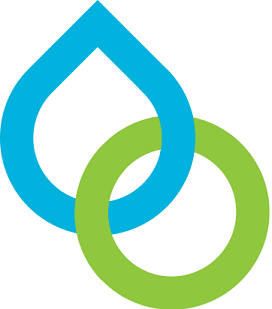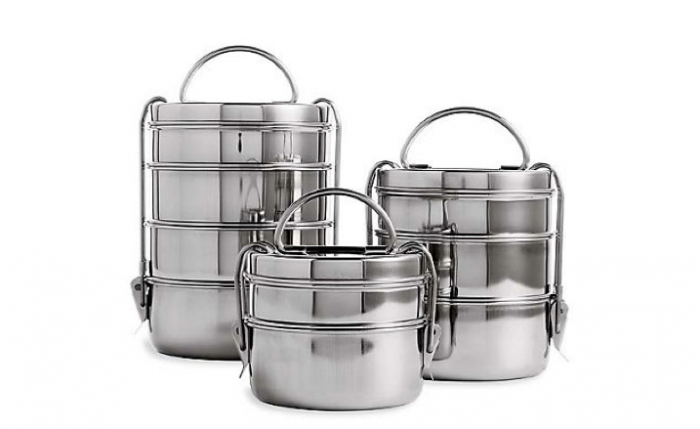Canadians send more than nine million tonnes of trash to landfill every year and an estimated 35 per cent of that waste is generated from packaging for food and consumer goods. And, of course, not all of that waste is properly disposed of - scientists have long been sounding the alarm that plastics and other debris are choking our oceans and waterways. It’s estimated that over 100,000 marine mammals and over 1 million sea birds die by plastic every year. One recent study found plastic inside every single whale, dolphin and seal examined. And we've all by now heard the horrifying prediction that by the year 2050, there will be more plastic floating around in the ocean than fish.
Quitting our culture's addiction to plastic may seem like a near impossibility - but some single-use plastics are easier to avoid than others. Take #ActionForWater by keeping plastic out of our waterways with these 10 simple single-use plastic swaps:
1) Plastic Straws
Plastic straws made the top 10 list of items picked up during beach cleanups and it's not difficult to see why. In the US alone, people go through enough of these useless plastic sticks to circle the globe 2.5 times - A DAY. In Canada, the estimate is 57 million straws a day and most of our major cities do not accept them in municipal recycling.
SOLUTION: Plastic straws are simply unnecessary. Either don't use straws or carry a reusable one with you in your zero waste kit. For bars and restaurants that need to provide straws to those who legitimately need them, they can carry paper straws.
2) Plastic Water Bottles
One million plastic bottles are bought around the world every minute and that number will jump another 20% by 2021 - far surpassing recycling efforts. Approximately 50 billion plastic water bottles are used each year in the US, while only 23 percent of them get recycled. This means 38 billion plastic water bottles end up in landfills and waterways. In Ontario, approximately one billion plastic bottles per year do not make it to recycling centres.
SOLUTION: drink water from the tap when you are at home and carry a refillable bottle with you at all times. If you are in Toronto, an app called Quench will tell you where the closest water fountain is to you and also which restaurants, bars and cafes have signed up to be refill locations. If you think a refillable cup takes up too much space, try a collapsible one.
3) Coffee Cups with Plastic Lids
Disposable coffee cups have an oil-based polyethylene plastic lining that is difficult to separate from the paper shell in the recycling process. Most recycling plants are not equipped to deal with them, which means they go to landfill. 4 billion disposable Starbucks coffee cups are thrown away every year - and that's just one coffee chain. In Toronto, we go through one million disposable coffee cups A DAY and if the plastic lids are dark in colour, those also have to go in the trash.
SOLUTION: carry a reusable cup for hot beverages on your person at all times. Worried about carrying around extra bulk? Try a collapsible coffee cup.
4) Plastic Bags
Victoria, B.C.'s decision to ban plastic bags from stores and grocery chains has reignited the debate in Canada about our bag problem. According to the Greener Footprints Society, a not-for-profit environmental advocacy group in B.C., Canadians use between 9 and 15 billion plastic bags a year - enough to circle the globe 55 times (US citizens use about 100 billion a year).
While the city of Toronto accepts plastic bags in the blue bin, outlying areas like Markham and York Region do not (in Markham you can drop them off at a special recycling centre). Recycling plastic bags varies by municipality so it's not difficult to understand why they are among the most common sources of marine debris found during beach cleanups.
SOLUTION: carry a reusable bag or two with you either in your car or purse, or carry it as part of a zero waste kit.
5) Plastic Bags for Produce
The thin low-density polyethylene (#4 plastic) bags used for produce have been excluded from most plastic bag bans around the world, including the most recently announced one in Victoria, British Columbia. There doesn't seem to be much research out there on how many of these thin little bags get recycled versus how many end up in landfills and waterways, but if plastic grocery bags are a problem - we're betting these ones are, too.
SOLUTION: carry reusable cloth and/or net produce bags with you, either inside your reusable shopping bag or as part of a zero waste kit. You can find a great selection of reusable produce bags from Credo Bags in Montreal.
6) Plastic Take Out Containers
The black plastics that many take away containers are made out of are not recyclable. This is because black does not reflect light and the optical scanners used to identify types of plastic at municipal recycling facilities use the reflection of light to identify whether or not something is recyclable.
SOLUTION: bring your own containers to restaurants. Get a multi-tiered Tiffin container for when you need to order multiple dishes of food and bring along reusable condiment containers for sauces.
7) Plastic Wrap
While the city of Toronto now accepts thinner plastics such as produce bags and plastic wrap in their recycling facilities, a Toronto Star article highlights that many of the difficult to sort plastics get sold off to distributers and companies overseas where labour laws are less strict and human beings can be paid very little to sort our trash. Now that China has banned the import of over 20 different categories of recycling and solid waste, where are all the hard-to-sort plastics going to go?
SOLUTION: best to skip it. There are lots of alternatives to plastic wrap out there. Store leftovers in reusable containers. Use a plastic-free reusable wrap, such as Etee Wraps which are handmade in Toronto. Or use reusable bowl covers such as these gorgeous ones by Canadian artist Edgy Moose Designs.
8) Plastic Cutlery
Using plastic cutlery is forking ridiculous - so forking ridiculous that France has implemented a ban on all single-use plastic cutlery (along with cups, plates and plastic bags) to come into effect in 2020.
SOLUTION: carry a reusable spork or set of reusable cutlery in a zero waste kit so you don't get caught on the go without them!
9) Plastic Party Cups
Same as above - we need to find a way to curb our reliance on the plastic cups widely distributed at festivals, events and parties. Initiatives have started up around the world, including Globlet from Australia who not only provide single-use cups to festivals and events, but make their own cups out of re-used plastics. One such company has just recently soft-launched in Toronto: keep your eye on Dream Zero.
SOLUTION: refuse single use cups at events and parties when you can. Bring your own cup to use if that is a possibility. If it's not and you have to drink out of a disposable cup, ensure it is properly recycled.
10) Six Pack Rings
The set of connected plastic rings that are used in multi-packs to secure beverages such as cans of pop and beer are deadly to marine life. While there are already edible and biodegradable versions on the way, 3D Printed out of wheat and barley leftover from the beer making process, for the time being it is essential to avoid these plastic rings.
SOLUTION: do not buy anything that uses these plastic six pack rings. And if you find them on the street or in a beach cleanup, immediately cut through all the loops and discard appropriately.
Looking for ways to educate others on the dangers of single-use plastics?
Use out Water Docs Where-You-Live program to host your own community screening of BIRTHPLACE, a film that tells the symbolic story of a man arriving on a perfect earth, who encounters his nemesis in the form of ocean trash. This can be screened alongside THE MAKING OF BIRTHPLACE, takes viewers on the journey behind the scenes of the making of the music video BIRTHPLACE and shares the filmmakers' passion for getting this story out to the world and the urgency behind its compelling message.
These two films are a hauntingly beautiful meditation on our relationship to water and our responsibility to do more to curb our unhealthy reliance on single-use plastic.
What are you doing to take #ActionForWater? Let us know!
This is a guest blog from @itsahashtaglife – blogger, social media manager and content creator for non-profits and charities in Toronto. She takes the tools and techniques of traditional digital media marketing and applies them to organizations working hard to shift our world into a new story – one that is more sustainable and supportive of people and the planet.













